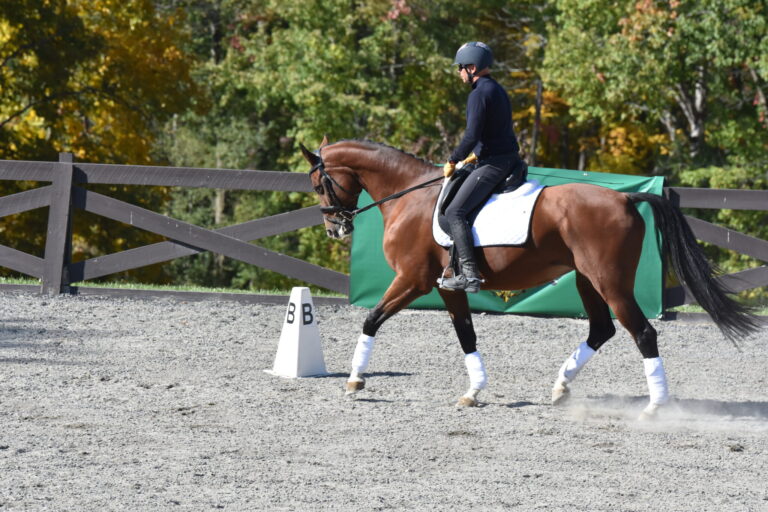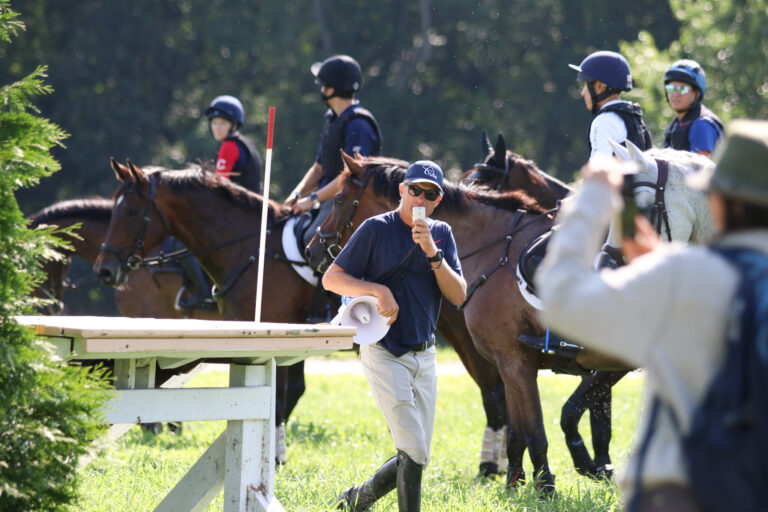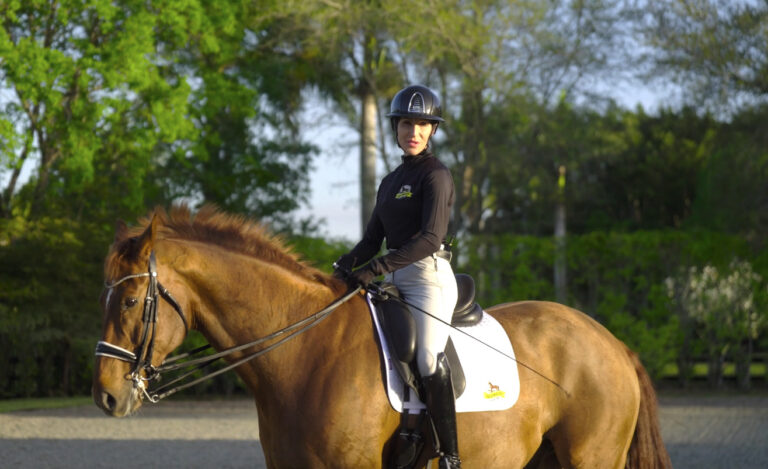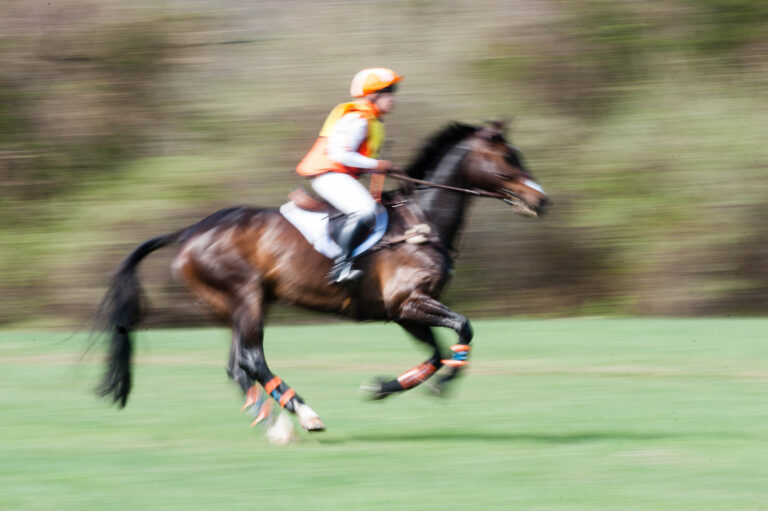If Tamie Smith could relive one ride from her long and notable career in eventing, it would unquestionably be her show-jumping round at the 2023 Land Rover Kentucky Three-Day Event aboard her beloved longtime partner Mai Baum. After she and the now 19-year-old German Sport Horse gelding delivered a double clear show-jumping round, the pair secured their historic victory as the first U.S. combination to win the event in 15 years.
“So often in our sport, you mess up or have bad luck or the wind blows the wrong way. There are so many things out of your control,” she said. “For everything to go right and hearing the crowd screaming after that last jump was just a magical feeling.”
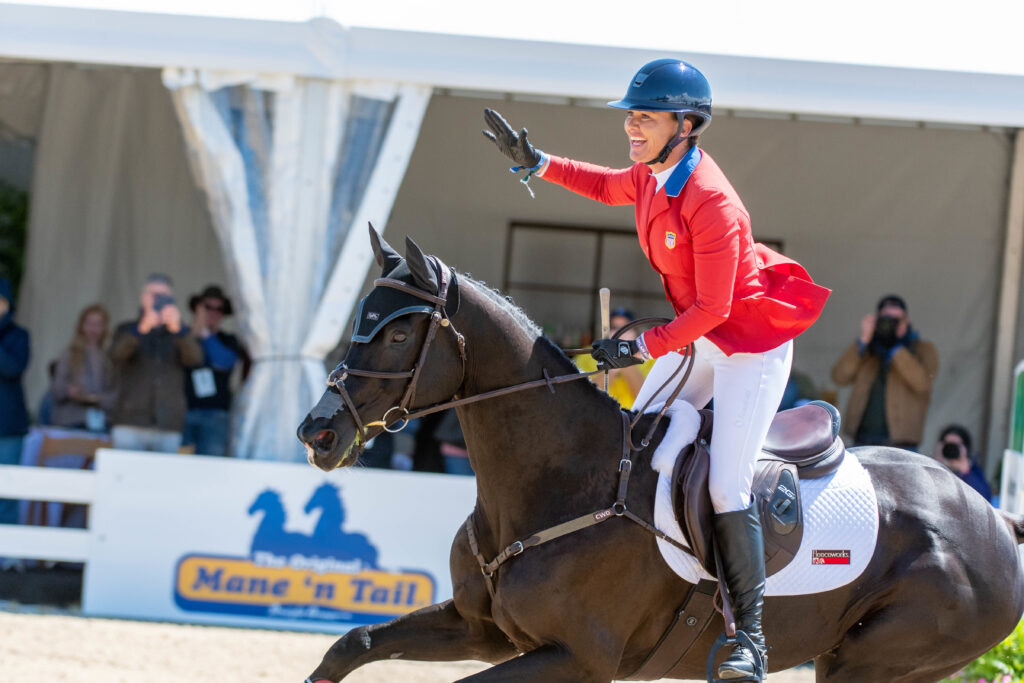
Yet, even at the pinnacle of her career, Smith finds the art of horsemanship a lifelong process and is devoted to continuing her education every day. “Learning is such a crucial piece of the puzzle with horses and is one of the most rewarding aspects of training,” she said. “Horses don’t think like people do, so you have to learn how they think and process information. That way, you understand why they react the way they do.”
Like most eventers who achieve five-star success, Smith’s journey was rarely easy, but every road bump revealed a new layer to her edification in the sport. Whether she’s coaching a student, bouncing ideas off her peers, babysitting her granddaughter or fielding questions from reporters at the Kentucky Three-Day, Smith exudes kindness and a genuine passion for every pursuit in her life. She talks about what contributed to her success, balancing motherhood with her eventing career and breaking gender barriers in the sport.
Defining Success In a Sport Ruled by Murphy’s Law
After every competition, Smith journals about what worked and what didn’t and reflecting on decades of her notes, she found a common thread among the most successful people in the sport—use mistakes as learning opportunities. “That’s the key ingredient to success in eventing,” she said. “Use failures to your advantage, and eventually you start to see all these micro successes.”
Unlike many at the top of the sport, Smith never struggled with being afraid to fail. To her, mistakes are simply lessons to add to her training toolbox to help both her and her horses learn and improve.
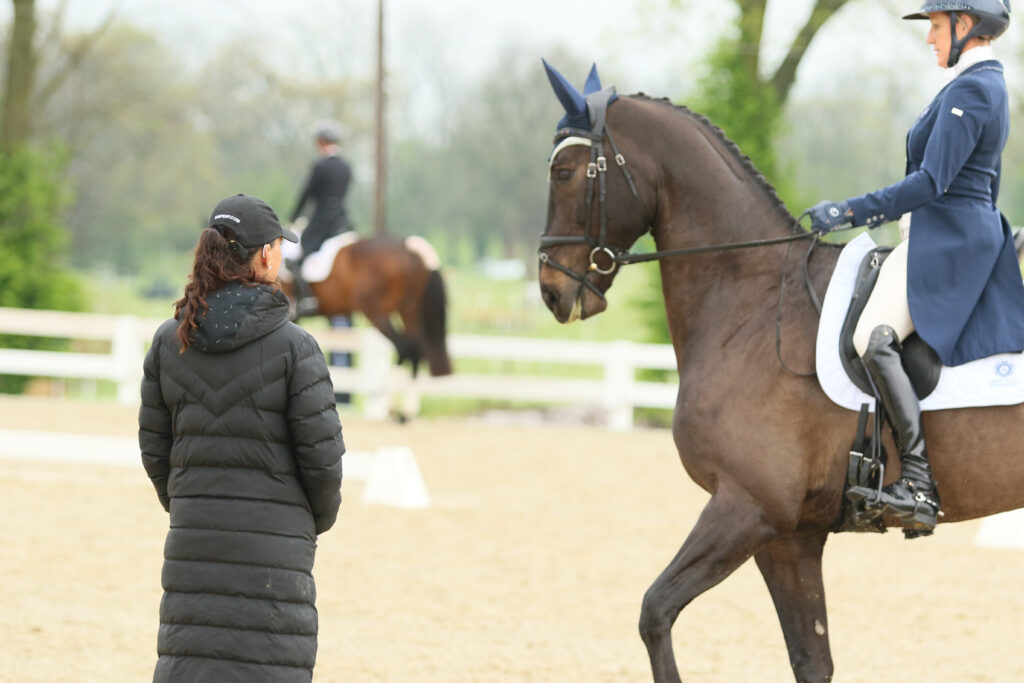
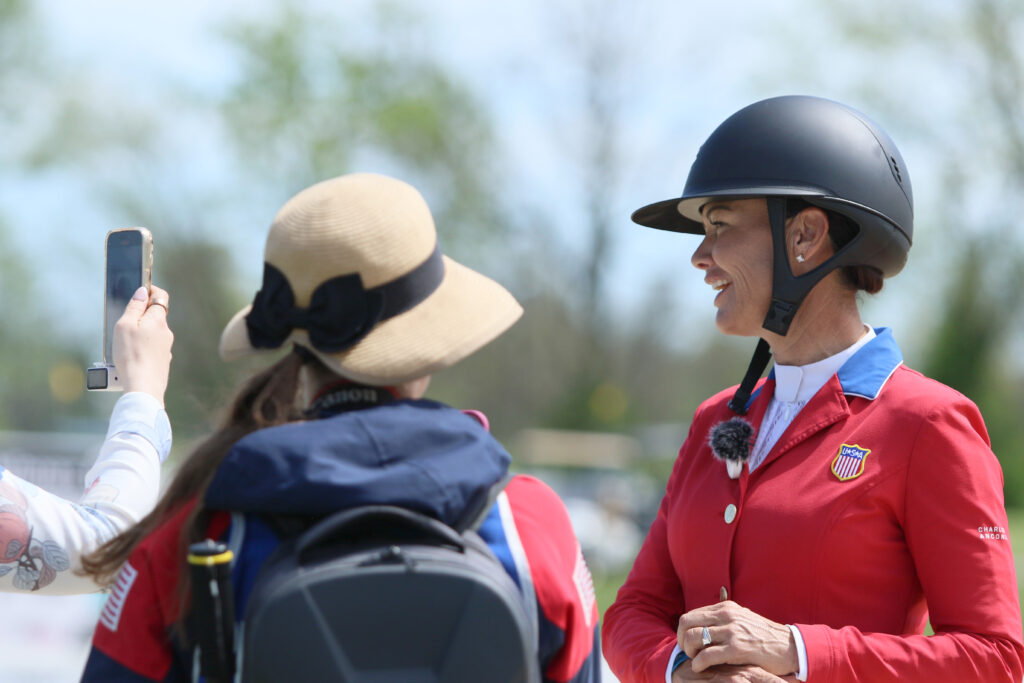
“I work hard to never allow my ego to get involved. I simply try to learn what went wrong. I’m resilient, but I’ve been knocked down a lot and there have been times when it was a real struggle to get back up,” she said. “That’s why the mentality of not just looking at the end result but focusing on the substance of the journey is so important. You need to have the drive to make it happen, but in an empathetic way.”
The Five-Star Grandma
When Smith had her daughter and now fellow eventer Kaylawna Smith-Cook in 1996, there weren’t many women riding at the five-star level who were simultaneously tackling motherhood. And she now jokes that she might be the only five-star grandmother, since Smith-Cook had her daughter Kennedy four years ago.
“As scary as it seemed at the time, I feel like having my kids has been such an advantage to my career. They helped me keep my work-family life balanced,” Smith, who is also mom to her 21-year-old son Tyler, said. “I had Kaylawna when I was so young that we really grew up together. During the hard times, she was my saving grace because I had this little support human depending on me who thought I was the world.”
Smith-Cook grew up riding under the tutelage of her mom, Australian show jumper Scott Keach and eventers Gina Economou and Bec Braitling. While she continues to help run Smith’s sales program at Next Level Eventing in Temecula, California, Smith-Cook now owns and operates her own training program, K. Smith Equestrian, and has a current string of exciting up-and-coming horses.
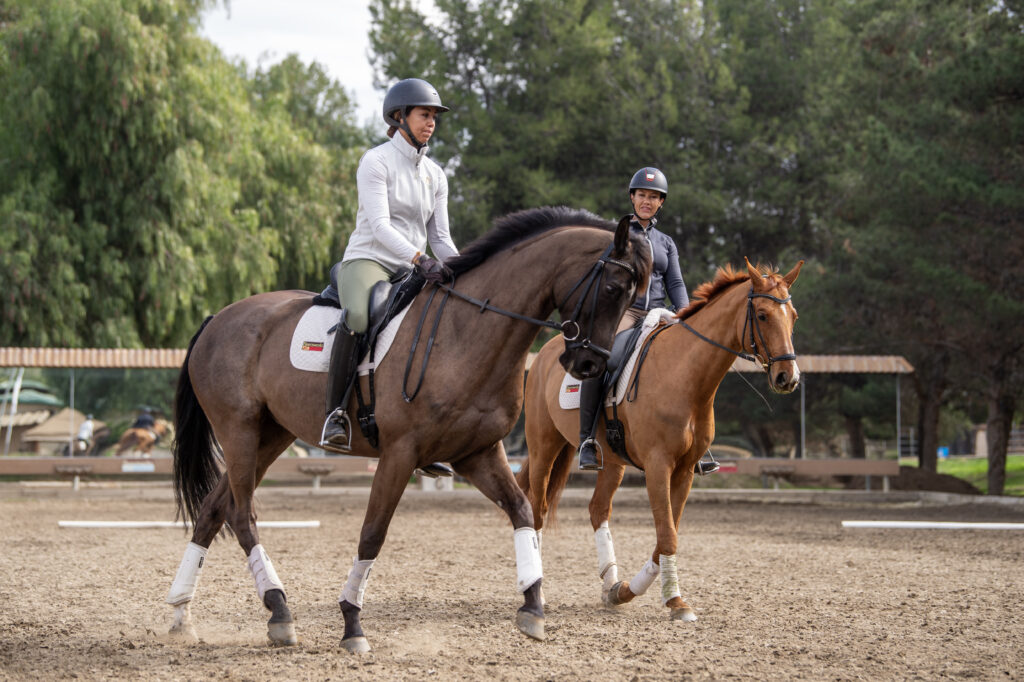
“I have a lot of pride in watching what Kaylawna has been able to do with her own career. It’s been amazing to see her cultivate a great group of owners and horses,” Smith said. “I’m really excited about that for her.”
While she admits it was challenging to stay in the “mom zone” during her daughter’s formative training years in the sport, Smith is grateful to her friends for offering up their expertise to the young, budding eventer.
“No one wants their mother telling them what to do in all aspects of their lives 24 hours a day. But we found a good balance so that I could be there to her support when she wanted my help,” she said. “It’s been amazing to watch Kaylawna grow and move up through the levels. And now being in the same sport together as adults I love bouncing ideas off her. One of my dreams is that she and I get to compete on a U.S. team together someday.”
Breaking the Mold
As one of the few five-star eventers to take on motherhood from a young age to being the first woman to win the Kentucky Three-Day Event since 2011 with her and Mai Baum’s 2023 victory, Smith has already made huge strides in breaking down gender barriers in a sport that’s predominantly been led by men.
“I don’t like to say that I’m at an unfair advantage being a woman in the sport because I genuinely don’t feel that way,” she said. “Equestrian is the only Olympic event where men and women compete equally, which is a testament to our sport in that it requires a high degree of skill and experience—not just strength.”
Smith notes, however, that as she’s gotten older, she has to hit the gym more than her male counterparts. “No matter how much we work out as women, we have to face the fact that men are naturally physically stronger than we are,” she said. “And if you’re galloping around a five-star cross-country track and aren’t on a Thoroughbred, strength matters.”
While women have undoubtedly made advances in the sport, Smith says the physical and hormonal changes that can affect muscle strength, bone density and energy levels they experience in their 40s and 50s is something that still needs to be addressed. And while most Olympic athletes don’t compete later in life, equestrians do.
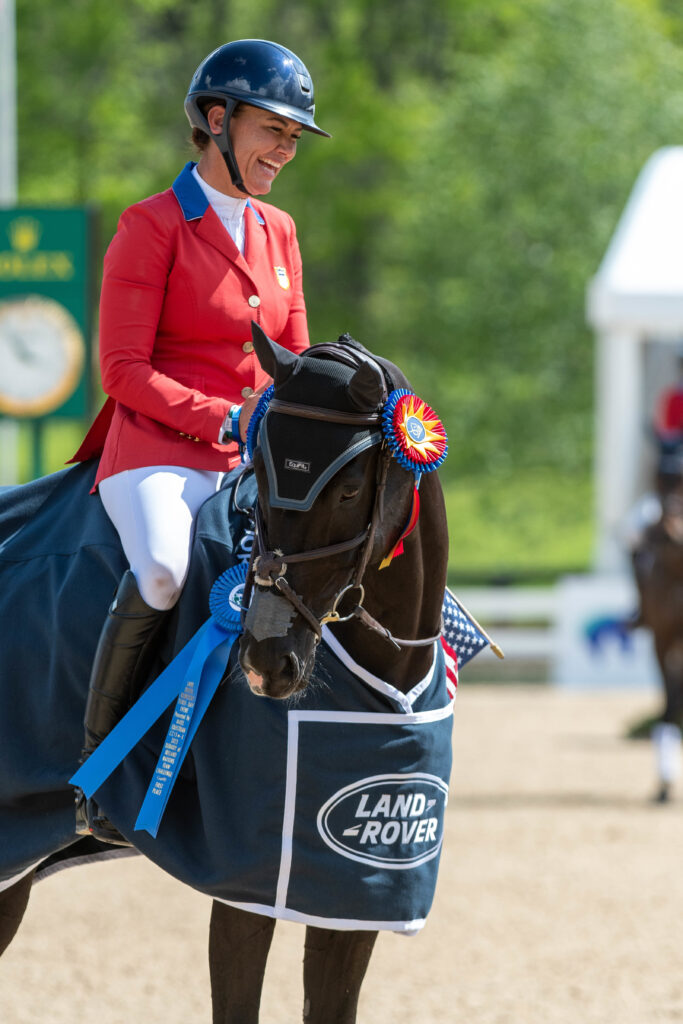
“If you’re a woman my age going into an Olympic sport and are experiencing depleted hormone levels, you aren’t allowed to supplement or get help for those issues,” she said. “Men don’t go through that. So that, to me, is an unfair advantage.”
Smith, who had additional challenges after being diagnosed with uterine cancer in her late 20s and having a hysterectomy at 30, points out that for some women, those changes happen even sooner in life.
“I really think we need to look at this and figure out how to fix it for other women coming up in the sport,” she said. “Because as we all know, we become better riders, competitors and horsemen and women with more experience, and age is part of that equation.”
For More:
This article first appeared in the summer 2025 issue of Practical Horseman.





